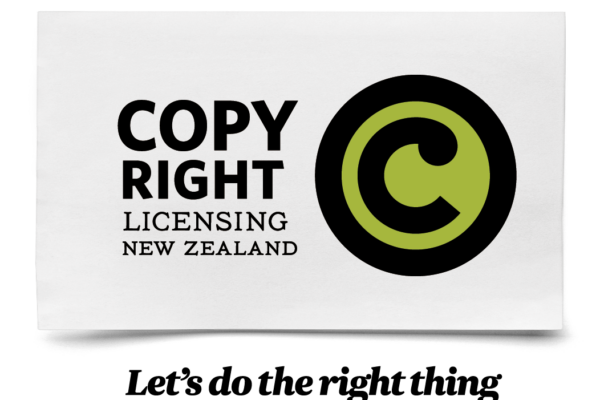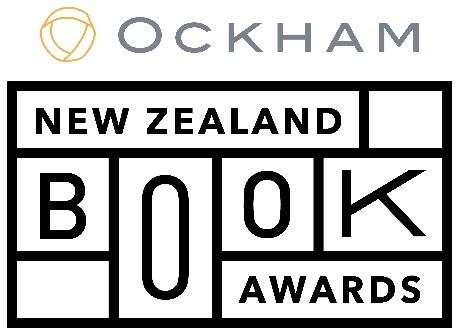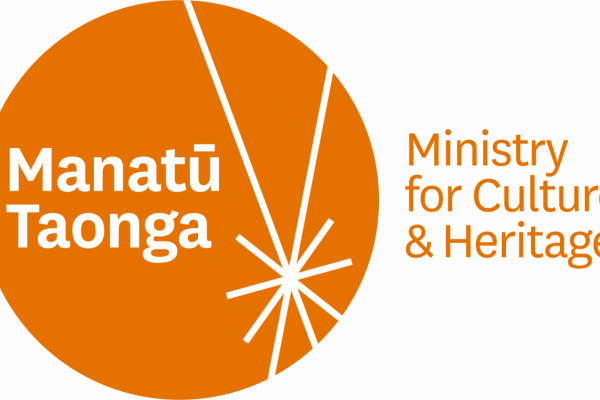The effort by the Office of Science and Technology Policy to change intellectual property protections in research publication draws ‘serious legal, policy, and economic concerns.’
‘Weakening US Leadership’
In what a study from University College of London’s Genetics Institute has revealed this week, by December, the novel coronavirus that would be named COVID-19 likely had left Wuhan and was entering communities in Florida, France, and elsewhere. As Morgan McFall-Johnson at Business Insider reported Thursday (May 7), researchers are now urged by the World Health Organization to reexamine samples from December and January, to see if an earlier-than-expected presence can be detected.
And at that point, Publishing Perspectives readers were learning of an alarm being sounded by scientific research publishers about a proposed policy change in the United States that effectively would require scientific journal articles be made available immediately, without embargo. A group of more than 100 publishing and/or research organizations including the Association of American Publishers (AAP) were telling the administration of Donald Trump that this would “effectively nationalize the valuable American intellectual property that we produce and force us to give it away to the rest of the world for free.”
Copyright protection, in short, would be short-circuited.

Kelvin Droegemeier
Almost immediately overshadowed by the procedures that would result in the impeachment of Donald Trump, the debate went into a period of public comment at the Office of Science and Technology Policy (OSTP) led by Kelvin Droegemeier. A “request for information,” is a standard term for a call for input of this kind and is usually issued with a deadline by which all who want to weigh in on a given issue. You can see the pertinent request for information here.
It was published on February 19 and the term for comments on it closed Wednesday (May 6), document number 2020-06622.
While normally we try to limit our use of initialisms (abbreviations such as AAP that are not acronyms such as NASA), we’ll use OSTP in this article to refer to the Office of Science and Technology as efficiently as possible.

Adam Mossoff
Documents reviewed by Publishing Perspectives today show that the public comment “request for information” from the OSTP has produced a brace of considered and extensively argued responses from the field and from members of Congress. Heritage Foundation: ‘That Vital Role Copyright Serves’
A
For a kind of flagship response, we can recommend the article produced on May 7 for the Heritage Foundation by the visiting intellectual property fellow Adam Mossoff.
Titled Radical OSTP Proposal Would Undermine American Research and Sacrifice American Intellectual Property, the article carries special weight because–as our international readership may not know–the Heritage Foundation is an enormously respected conservative think tank with more than half a million paying members. Its condemnation of a Republican administration’s effort to adjust copyright protection policy, therefore, arrives with tremendous gravity.
In his abstract, Mossoff and his editors encapsulate the foundation’s stance this way;
“The Trump Administration should not permit the Office of Science and Technology Policy (
OSTP) to eviscerate the key constitutional and economic function of copyright law by forcing US intellectual property owners to give away their copyrighted works for free to China and the rest of the world.
“Nor should it allow the OSTP to contradict its own policies on trade and IP.
“It should join with those who have already raised serious legal, policy, and economic concerns about the OSTP proposal. The administration should reject the OSTP proposal and reaffirm the vital role that copyright serves in securing the fruits of the productive labors of those who create and disseminate journal articles.
Mossoff’s article, as presented by the foundation, has three key takeaways, and they’re reflected in the commentary from others responding to the OSTP’s request for information. Quoting those takeaways:
- “An Office of Science and Technology Policy proposal would give away US intellectual property, undermining US trad
 e positions and weakening US leadership
e positions and weakening US leadership - “America’s founders understood citizens would only engage in productive labors if the fruits of their labors were secured to them under law
- “The Trump Administration should reaffirm the vital role copyright serves in securing the productive labors of those who create and disseminate journal articles”
AAP: ‘An Important Government Partner’

Near the US Library of Congress. Image – iStockphoto: Marvin Bowser
For the Association of American Publishers–you can read the comment in its entirety here–Matthew Barblan, the organization’s vice-president for public policy, captures the moment early on by pointing out an effort Publishing Perspectives readers will recall from our mid-March coverage.
“The importance of the marketplace was highlighted earlier this year as publishers across the country took the initiative to implement policies that ensure immediate and widespread free access to a great diversity of high-quality journal articles and other materials pertaining to the COVID-19 outbreak.
“These leaders—who publish some of the most respected research journals in the world—were able to make this invaluable contribution to the global pandemic response because, and only because, they had invested in and produced the journals in the first place.
“This shows that the private sector performs a different role than government, and more precisely that the private publishing industry is an important government partner.”
The crux of the association’s position is that such “drastic marketplace intrusions” as “government-mandated immediate free online access to peer-reviewed works … are at odds with good policy, would dramatically reduce investment in high-quality content, and would undermine the innovative open access and public access business models currently being developed in the marketplace.”
A policy that mandated immediate free access to peer-reviewed manuscripts, the AAP maintains, would ” (1) directly and negatively impact American researchers, scientists, and medical professionals, as well as the quality of scientific and medical research publications produced in the US; (2) undermine American intellectual property rights that are fundamental to promoting investment and innovation in science and medicine; and (3) directly and negatively impact the American economy, jobs, and thriving US intellectual property exports.”
In his statement for AAP, Barblan looks at the OSTP’s question, “What current limitations exist to the effective communication of research outputs (publications, data, and code) and how might communications evolve to accelerate public access while advancing the quality of scientific research?”

Matthew Barblan
Barblan answers, in part, “AAP is not aware of any credible evidence that researchers, practitioners, or other consumers who need access to peer-reviewed journal articles suffer from meaningful lack of access. And this is not surprising, given that distributing content in the marketplace—and thereby providing access to countless
readers around the world—is the core mission of the publishing industry. Collectively, our members provide access to millions of articles through billions of downloads every year. And when access isn’t available immediately for free, it is still available immediately through the marketplace for anyone who subscribes to or otherwise licenses the content, just as anyone can go online to purchase a book, movie, song, or other work.”
It is, in fact, Barblan writes, data and datasets that underlie research–” even for data resulting directly from federally funded research, despite the OSTP memo’s requirement”–that may not be available, “which can affect the quality of scientific research, particularly in instances where the data is necessary to replicate or otherwise test the rigor of scientific discoveries.”
And in his summation, Barblan points to some of the criticism of the OSTP policy proposal from Capitol Hill, writing, “Eight Republican members of Congress with a background in medicine noted that ‘such a policy would undermine American jobs, exports, innovation, and intellectual property resulting in scientific societies ceasing operations or no longer disseminating US-sponsored science that is key to maintaining US leadership in science and technology on the global stage.’
“Ten other Republican members of Congress explained that ‘this overreach into an effective private marketplace within the American economy” would eliminate ‘billions of dollars of US exports currently attributable to publishers’ and would ‘threate[n] to upend the most trusted form of scientific communication … limiting the quality and quantity of peer-reviewed articles that are available to the very scientists they are intended to inspire, and threaten[ing] an untold number of great medical and scientific breakthroughs.’”
From the Hill: ‘To Give It Away for Free’

Townhouses on April 25 in Washington, DC. Image – iStockphoto: Marvin Bowser
When the association’s Matthew Barblan references eight Republican members of Congress with medical backgrounds, he’s referring to a letter written to Trump on February 18. It comes from:
- Brian Babin, DDS (R-TX36)
- Roger Marshall, MD (R-KS01)
- Mike Simpson, DMD (R-ID02)
- Larry Bucshon, MD (R-IN08)
- David P. Roe, MD (R-TN01)
- Paul A. Gosar, DDS (R-AZ04)
- Drew Ferguson, DMD (R-GA03)
- Andy Harris, MD (R-MD01)
In their letter to the Oval Office, the congressmen spell out the nature of the one-year embargo that currently protects and supports publishers.
They write, in part, “Requiring publishers to immediately make federally funded medical and scientific discoveries published in their journals freely available on the global market, as has been reported to be the basis of the executive order, would undercut the ability of American publishers to recover the investment made in curating and assuring the quality of research content.
“Currently, free distribution of research findings is subject to a 12-month embargo. While this requirement in and of itself equates to government intervention in the private market, changing the current system by decreasing or eliminating the current embargo would make it difficult if not impossible to reasonably invest in publishing these articles for most American publishers.”
And the 10 other Republican members of Congress Barblan refers to wrote to the Office of Management and Budget’s acting director Russell Vought on April 9, calling the OSTP’s proposed policy-change executive order an effort “to remove the already significantly limited intellectual property protections afforded to certain peer-reviewed journal articles.”

Rep. Doug Collins (R-GA09)
Those congressional representatives include Georgia’s Doug Collins, the ranking member on the House Judiciary Committee who performed during the impeachment proceedings as one of Donald Trump’s most vociferous defenders.
The list of 10 to which Barblan refers:
- Ben Cline (R-VA08)
- Doug Collins (R-GA09)
- Martha Roby (R-AL02)
- Tom McClintock (R-CA04)
- Debbie Lesko (R-AZ08)
- Guy Reschenthaler (R-PA14)
- Kelly Armstrong (R-ND At Large)
- W. Gregory Steube (R- FL17)
- Morgan Griffith (R-VA09)
- Chip Roy (R-TX21)
They argue that the change “would also have a significant impact on the American taxpayer, who would have to foot the bill–estimated to be in the billions–for peer-reviewing and publishing thousands of articles a year because there would be no further incentive for publishers to invest the time and resources required to publish these articles.”
The letter, written by Cline and signed by the others, calls the OSTP’s proposed executive order an “overreach into an effective private marketplace” that could have “potentially devastating repercussions.
“Such a move,” Cline’s letter reads, “would de-incentivize foreign entities from subscribing to American journals, eliminating billions of dollars of US exports currently attributable to publishers. It would also allow countries like China easy free access to our highly sought-after intellectual property and help China and other economic competitors to further encroach on our position as the leader in innovation and research.
“In this period, when we as a nation are already facing unfair competition from China economically, consistently fighting to protect our intellectual property from theft and piracy, and attempting to establish an advantageous trade policy with China, we don’t need to further tilt the scales in their favor while tying our own hands.”

Sen. Thom Tillis, R-NC
What’s more, in an April 17 letter to Droegemeier, North Carolina Republican Senator Thom Tillis, who chairs the Senate Judiciary Committee’s subcommittee on intellectual property, writes, “I remain very concerned about this proposed order” because, in his assessment, its policy change “would be harmful to American intellectual property interests and, as a result, would jeopardize the American exports, jobs, research, and innovation that our intellectual property system supports.”
Tillis’ conclusion is that the idea behind the OSTP’s proposed executive order “is a mistake.
“Ignoring Congress’ guidance, this policy would undermine American copyright incentives and set a dangerous precedent for American intellectual property rights in private sector-produced downstream products that build upon federally funded research.”
More Organizational Responses

On Capitol Hill, April 25. Image – iStockphoto: Marvin Bowser
The Copyright Alliance, based in Washington, points out in its statement filed with the OSTP that the policy change under debate is put forward without due diligence in process or effect.
“Nor has anyone presented evidence of failures in the current market for publishing peer-reviewed articles—a market that is in fact incredibly innovative, diverse, and competitive.“The current proposal,” writes the alliance’s CEO Keith Kupferschmid, ” has been put forward with no evidence that this untested, one-size-fits-all immediate free distribution model is viable or sustainable across the broad range of authors and publishers that produce peer-reviewed journal articles.
“In an attempt to hastily eliminate unproven barriers to access, the proposal to eradicate the 12- month embargo ignores the constitutional purpose of copyright law in promoting the progress of science by securing for limited times to authors the exclusive right in their writings.”
And discipline-specific statements include several key points.

Keith Kupferschmid
From the American Thoracic Society, we read, “Scientific publishing is a large, global industry with important implications for trade, country-specific intellectual capital, and job creation. According to the International Association of Scientific, Technical and Medical Publishers, there are more than 28,000 English-language peer-reviewed journals and more than 6,000 non-English, peer-reviewed journals that publish more than 2.5 million manuscripts annually.
“In 2013, the industry generated an estimated $25 billion in revenue and directly employed 110,000 people, while indirectly supporting an additional 30,000. Thus, society urges the administration to carefully consider any potential deleterious economic and employment effects before implementing radical changes in the scientific publishing industry.”
The American Institute of Aeronautics and Astronautics refers to existing expectations and understandings, writing, “AIAA has supported the OSTP’s call for public access and we have trusted that our investment in producing the high-quality peer-reviewed journals that our readers in the aerospace community rely on will not be significantly jeopardized by the current one-year embargo.
“AIAA has worked hard to educate our authors on their obligations to properly archive their work to ensure public access. We have invested in mechanisms to capture funding data to more easily track the final results of work supported by Federal research dollars as reported in our journals, we offer voluntary open access for published journal articles, and we have liberal sharing and reuse policies for everything we publish.
“Based on the limited data we have available so far, however, evidence suggests that requiring articles to be freely available immediately upon publication in a journal would directly result in a reduction in either the quantity or quality (or more likely, both) of peer-reviewed journal articles produced by hundreds of organizations like ours.”
The Diabetes Technology Society writes, in part, “Reducing or eliminating the current one-year embargo would significantly jeopardize our organization’s ability to invest in producing the high-quality peer-reviewed articles that our readers in the diabetes technology community rely on.
“If our current default one-year embargo policy is no longer possible, then we would probably have to sustain significant cutbacks in subscription revenue that would not be overcome with per-author charges. Since our work is intended to promote better technologies for patients, then this contemplated OSTP policy would end up harming patients with diabetes.”
And the American College of Cardiology staff writes quite closely at several points to the COVID-19 reality of the backdrop against all this is playing out and brings it home to potential deleterious impact on patients: “While a potential shift to immediate public access could have a negative impact on publishers,” she writes, “it also has the potential to create significant downstream effects on cardiovascular patients, clinicians, and researchers.
“For example, an executive order requiring immediate availability would impact 20 to 40 percent of the research published in cardiovascular journals, forcing major clinically focused peer-reviewed journals to orient toward an open access model. Moving to an open-access model shifts fixed publishing costs associated with rigorous peer review to the researchers and authors through article publishing charges (APCs), imposing significant financial burden to researchers and authors publishing manuscripts of clinical relevance.
“This would also negatively influence the number of researchers who pursue an academic career, consequently impacting the viability of the research enterprise and discoveries that improve population health.
“Another anticipated effect is an increase in the amount of grant monies requested of public funders, such as the National Institutes of Health, in order to cover the cost of publishing in an open-access environment. Such a shift would effectively diminish the amount of funding available to the research and scientific community in the United States.”
More from Publishing Perspectives on issues in publishing relative to the Donald Trump administration is here, and more from us on the coronavirus COVID-19 pandemic and its impact on international book publishing is here and at the CORONAVIRUS tab at the top of each page of our site.





